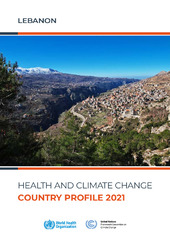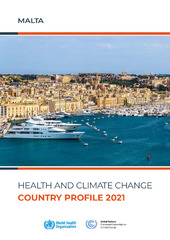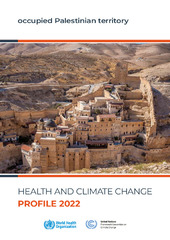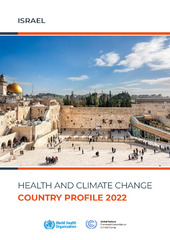The Health and Climate Change Country Profiles, developed in collaboration with national governments, are part of WHO’s monitoring of health sector response to climate change. The profiles summarize evidence of the climate hazards and health risks facing countries. They track national progress in addressing the health threats from climate change and highlight opportunities for gaining health benefits from climate mitigation action. The profiles provide an overview of key areas for taking action and provide links to available resources.
Over 80 countries have participated in the Health and Climate Change Country Profile initiative since it began in 2015. The profiles are organized in three separate series: the current 2021-2022 global series; the 2020-2021 Small Island Developing State series; and the 2015-2018 global series.
29 March 2022 Health and climate change: country profile 2021: Israel
29 March 2022 Health and climate change: country profile 2021: occupied Palestinian territories
24 March 2022 Health and climate change: country profile 2021: Malta
24 March 2022 Health and climate change: country profile 2021: Lebanon
WHO’s monitoring of health and climate change is comprised of three main initiatives:
The country profiles are developed in close collaboration with regional and country level WHO offices, national health authorities, and health stakeholders. The overall aims of the WHO and UNFCCC Health and Climate Change Country Profile Project are to:
- Increase awareness of the health impacts of climate change
- Support evidence-based decision making to strengthen the resilience of health systems
- Support health involvement in national and international climate processes such as the United Nations Framework Convention on Climate Change (UNFCCC)
- Promote actions that improve health while reducing greenhouse gas emissions.




